Indo-Pacific: New Geostrategic Reality
On 30th June, 2020 Gateway House in association with Konrad-Adeneur-Stiftung (KAS) co-hosted a webinar on Indo-Pacific: New Geo strategic reality.
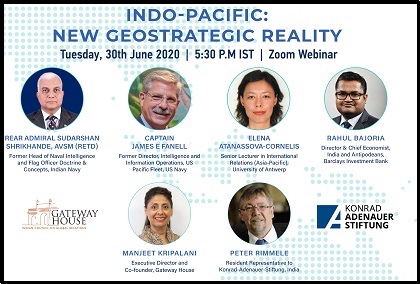 Courtesy: Gateway House
Courtesy: Gateway House
On 30th June, 2020 Gateway House in association with Konrad-Adeneur-Stiftung (KAS) co-hosted a webinar on Indo-Pacific: New Geo strategic reality.
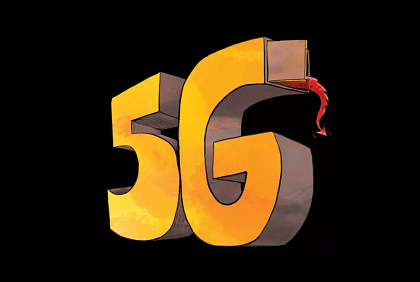 Courtesy: Uday Deb/Times of India
Courtesy: Uday Deb/Times of India
After the strategic digital pushback against Chinese investments and apps, India should turn its attention to the biggest Chinese domination tool – 5G. This is the mother lode that enables the efficient gathering of data, which when mined, results in product enhancement and pricing benefits to products listed in China 2025 and helps China set global standards. There is an urgency for alternate suppliers of 5G equipment and other technologies to avoid relying on China.
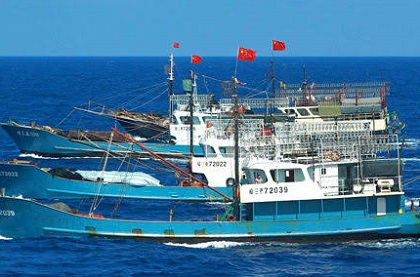 Courtesy: Tasnim News Agency
Courtesy: Tasnim News Agency
The Quad is set to launch a satellite-based maritime security initiative to monitor illegal fishing by the Chinese maritime militia. This is long overdue. China’s ‘little blue men’ are recruited from its fishing communities but are in fact official members of a well networked and controlled defense force engaged in regional grey zone warfare.
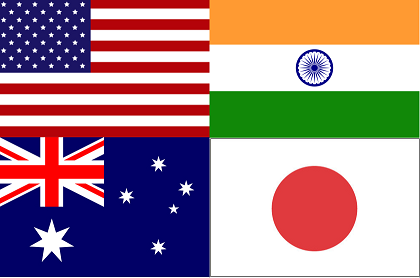 Courtesy: Shutterstock/Gateway House
Courtesy: Shutterstock/Gateway House
China’s escalating actions in the wake of the COVID-19 catastrophe is a calculated strategic diversion and risk. In the Indo-Pacific, tensions between China and the U.S., Australia, India and others are building momentum. As a geopolitical partnership, the relevance of the Quad is now proven. There are clear ways to empower it immediately, and make it a resilient grouping.
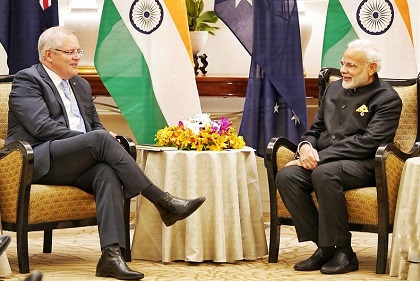 Courtesy: MEA/Flickr
Courtesy: MEA/Flickr
At the 4 June, India-Australia, virtual summit, one of the most critical, among several agreements signed, was the Mutual Logistics Support Agreement (MLSA). India has logistics support agreements with many countries. How is the MLSA with Australia any different? Given the geo-strategic maritime competition with China, this agreement is uniquely significant and could be especially beneficial for the Indian Navy.
Manjeet Kriplani, Executive Director, Gateway House, in discussion with Prof. Rory Medcalf, Head, National Security College, Australian National University, and author of Indo-Pacific Empire: China, America and the Contest for the World's Pivotal Region; and Cleo Paskal, Associate Fellow, Energy, Environment and Resources, and Asia-Pacific, Chatham House; on the possibility of an Indo-Pacific Charter for the region.
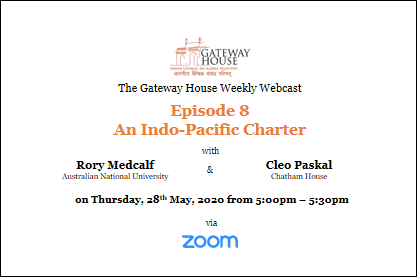 Courtesy: Gateway House
Courtesy: Gateway House
Manjeet Kripalani, Executive Director, Gateway House, in discussion with Prof. Rory Medcalf, Head, National Security College, Australian National University, and author of Indo-Pacific Empire: China, America and the Contest for the World's Pivotal Region; and Cleo Paskal, Associate Fellow, Energy, Environment and Resources, and Asia-Pacific, Chatham House; on the possibility of an Indo-Pacific Charter for the region.
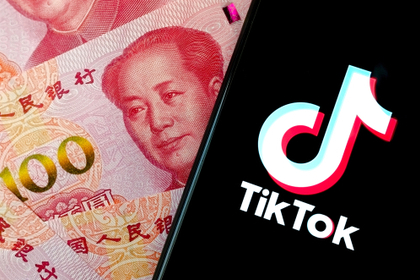 Courtesy: Shutterstock
Courtesy: Shutterstock
With more than 130 and 119 million users respectively, Chinese apps such as UC Browser and TikTok are not merely internet products, but serious content aggregators in India. But the final control of data collected by these apps resides in China, and this creates a grave risk to national security.
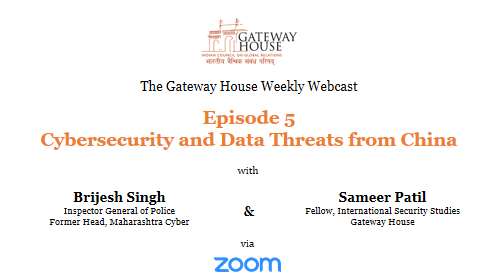 Courtesy: Gateway House
Courtesy: Gateway House
In this episode we discussed Cybersecurity and Data Threats from China with Brijesh Singh, Inspector General of Police and Former Head, Maharashtra Cyber. Hosted by Sameer Patil, Fellow, International Security Studies Programme, Gateway House.
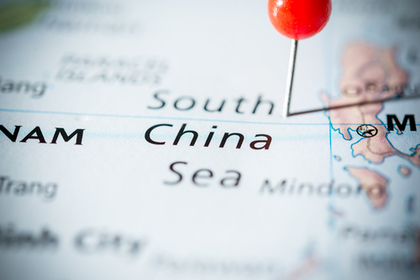 Courtesy: Shutterstock
Courtesy: Shutterstock
Under the cover of the COVID19 crisis, China has silently, once again, upped aggression in the disputed South China Sea, in March 2020. These incremental actions by China are part of its ongoing attempt to dictate the Code of Conduct in the region.